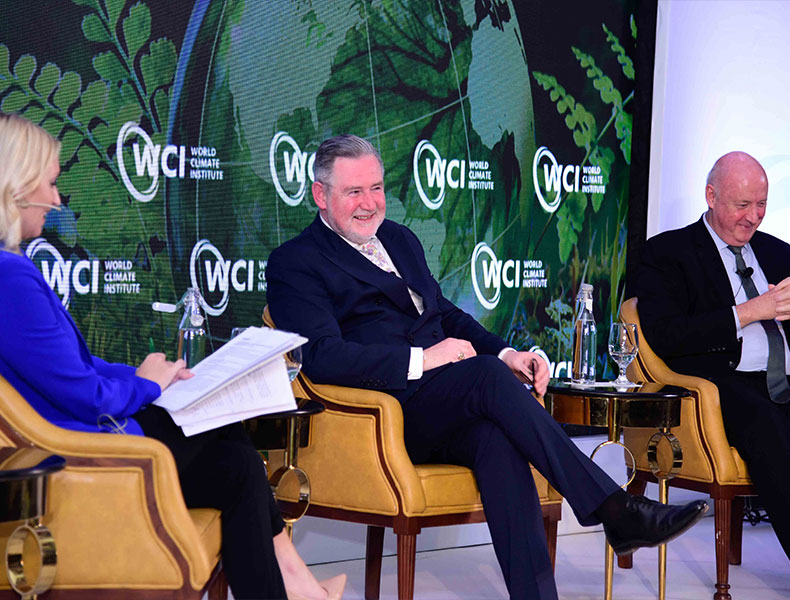
January 7, 2023
Speakers
Barry Gardiner, Member of Parliament, United Kingdom and Director, Climate Parliament
His Excellency Freddy Svane, Ambassador of Denmark to India, Ministry of Foreign Affairs of Denmark
This session expanded on North-South strategies to tackle climate change, as well as the collaboration opportunities that need to be accelerated to bridge the gap of green transition. The conversation also highlighted India and Denmark’s partnership and initiatives for the future.
Highlighting the aspects which resulted in Denmark becoming a completely renewable-energy powered nation, His Excellency stated three factors: visionary politicians, research and development, and a proactive business sector. He added these factors have resulted in a sustainable model. Commenting on the same theme in context to the UK, Barry Gardiner added that while they are not anywhere near Denmark, 43 per cent of power system in the UK is electrified via renewables. Additionally, there have been certain periods, wherein, they haven’t had any fossil fuels on the system.
When probed to comment on the opportunities between the Global North and South, His Excellency applauded the Green Strategic Partnership between Denmark and India. It’s envisioned in a way wherein the Danish skill sets and knowledge in the green transition space, support India across sectors to accomplish its domestic missions while greening the economy. In terms of the work being done at the Danish Embassy in India, His Excellency added that the diplomats are not limited to their office buildings but are going to the ground to better understand challenges, thereby, come up with the right kind of strategies to tackle the same.
The moderator then positioned a key question wherein she asked the panelists how we can bring those leaders and countries on board which might not always have the same outlook vis-à-vis climate change.
To this, Barry Gardiner added that we first need to acknowledge that we have a common problem. However, the world instead started off with pointing fingers at each other and played the blame game at COP 15 in Copenhagen. It only turned upside down at Paris, wherein the leaders realised that the solution does not lie in pointing fingers at others, but rather in voluntary commitments. The issue needs to be resolved together. Therefore, it is now about saying, yes, it’s a common problem but we have different responsibilities, which further need to be assigned through fair assessments based on both net carbon emissions and historic responsibility.
Towards the end, while summing up their thoughts, His Excellency added, “there is no solution to climate change at a global level without India’.
October 18, 2023
January 7, 2023